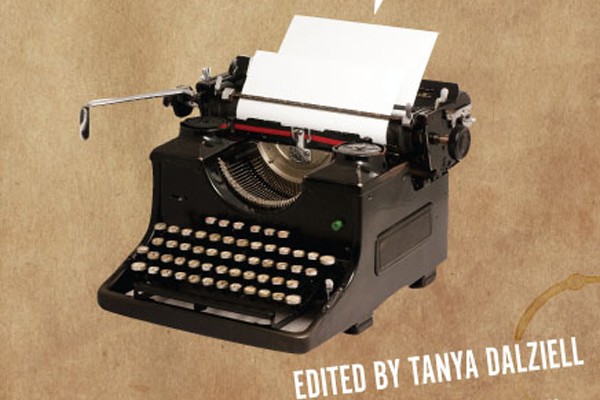Telling Stories: Australian Life and Literature 1935–2012
Tanya Dalziell and Paul Genoni (eds.)
Monash University Publishing
 Telling Stories: Australian Life and Literature 1935–2012 looks to be an intimidating beast at first glance, boasting 639 pages and featuring 86 essays produced by an almost equal number of writers and academics, chronologically tracing the way in which Australian literature, culture and identity have been relentlessly interwoven over the past 77 years. Each short essay or ‘story’ found in the pages of this captivating tome, which the editors suggest is something of a ‘twenty-first century cabinet of curiosities’, leaves the reader feeling a little brighter and wiser for having listened in.
Telling Stories: Australian Life and Literature 1935–2012 looks to be an intimidating beast at first glance, boasting 639 pages and featuring 86 essays produced by an almost equal number of writers and academics, chronologically tracing the way in which Australian literature, culture and identity have been relentlessly interwoven over the past 77 years. Each short essay or ‘story’ found in the pages of this captivating tome, which the editors suggest is something of a ‘twenty-first century cabinet of curiosities’, leaves the reader feeling a little brighter and wiser for having listened in.
In the opening pages, editors and co-contributors Tanya Dalziell and Paul Genoni ask us to think a little more expansively about ‘literature’. Although many literary greats are given their dues herein, in this collection ‘story’ is not restricted to the literary alone. Modest and mighty Australian stories are uncovered in the lyrics of rock stars, the verses of urban poets, the recipes and reflections of cooks and the speeches of political leaders.
This book spans a definitive era in the building of Australia’s national and international character and this collection is something of an intimate journal recounting those formative literary events and national narratives that shaped individuals and citizens. Most years, from 1935 – the year in which the first part of PR Stephenson’s watershed manifesto The Foundations of Culture in Australia was published – to 2012, are revisited by an essay devoted to an Australian story that has left an indelible mark.
Readers are invited to either embark upon a mythic journey through linear time or dip into decades at random, shining a light on particular eras or event. I couldn’t resist the mythic journey. I found that some of my favourite entries were those that covered events or sentiments that had resonated in my own life, but that invited me to remember them with context and understanding. Maria Takolander’s ‘Slow Man overboard: JM Coetzee on Australian hospitality’ was such an essay. This entry, about 2005, speaks of the shameful relevance Coetzee’s ‘Australian’ novels have both to Howard’s Australia and Apartheid-era South Africa. Coetzee has much to say on the subject of race segregation and his protagonists aren’t shy about commenting on Aboriginal rights and the treatment of asylum seekers. ‘Sympathetic imagination,’ he asserts, though the actions of his characters, knows no boundaries and is key to tolerance and the practice of compassion.
The 1992 essay has much to say about the power of imagination, also. In ‘Imagine: The Redfern speech’, Carmen Lawrence unpacks Keating’s inspired Redfern address, remarking on the fact that most speeches are delivered to fulfil some political obligation but few make their way into the hearts and minds of a nation. Lawrence applauds Keating and Watson’s use of storytelling techniques to capture the imagination of Australian citizens and challenge them to re-imagine the injustices of the past in order to co-create a more just future. This speech does what storytelling does best: ask its readers to step into the shoes of the protagonist and begin to understand what it might be like for a person in such a place.
It was not only the essays closer to my birthdate that caught my imagination. Ian Saunder’s ‘Rowing on the Radio: The Argonauts Club’ was a fascinating journey into 1941 and the midst of the Second World War, when the ‘Children’s Hour’ offered Australian youngsters an ‘oasis of sanity’. Radio dominated the national conversation at this time and the long-running program gave children a place to belong outside the chaos of the adult world. The Argonauts club not only created a community that inspired children to invest in the wonders of art and nature but, as author Robert Dessaix recalls, becoming a member of the Argonauts Club was also a way of sending a message to everyone you knew: ‘I’m going to grow up to be a good citizen.’
These are merely a sample of the cultural smorgasbord within. The essays in this collection lift the lid on a time and place in the most addictive manner. No one piece stands alone, but rather leads the reader to join the flow of ideas, following the links in subsequent essays. Before I knew it, the years had raced past and I was staring 2012 in the face with Paul Genoni’s stirring account of the disappearance of Jill Meagher and the way in which her story united a city in ‘Grey skies over Melbourne: Grand Final Week 2012’.
The editors suggest that one (very well-read) lifetime would have been enough to engage with all of the works touched on in these essays. But if you’re anything like me – born a little too late in the season and sporting an already overflowing must-read list – you just may have the chance to catch up on the last 77 years in only 639 pages. Telling Stories is an invaluable point of reference for any Australian with an interest in the past and an investment in the future.



